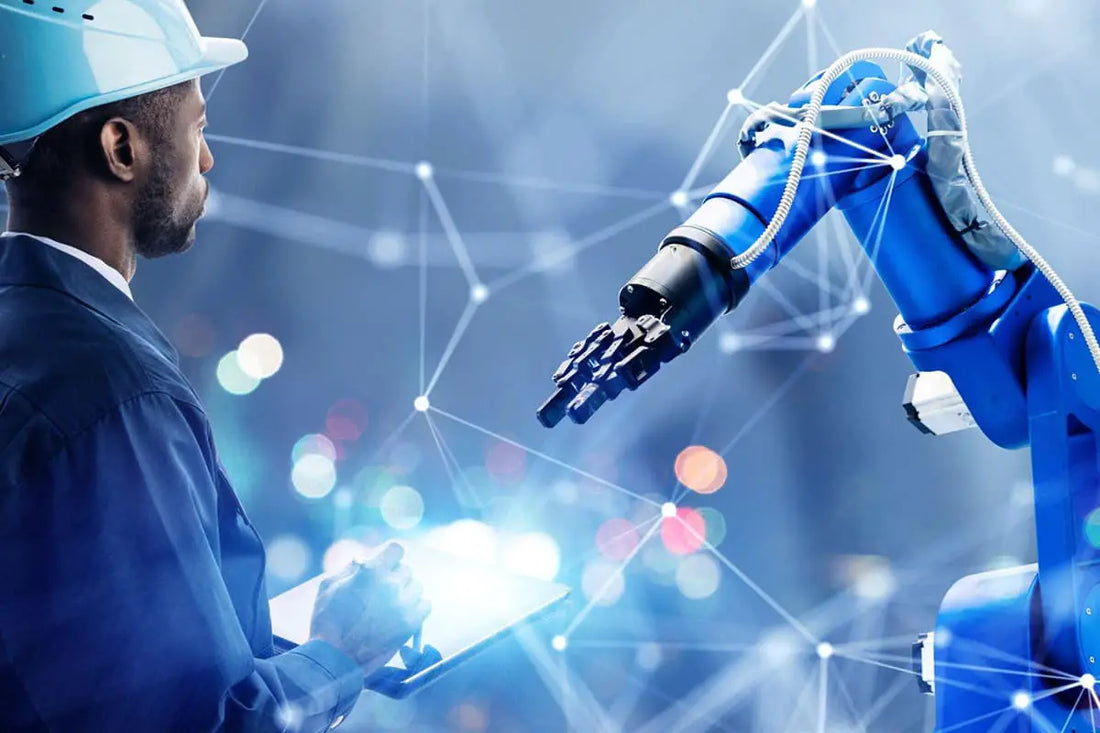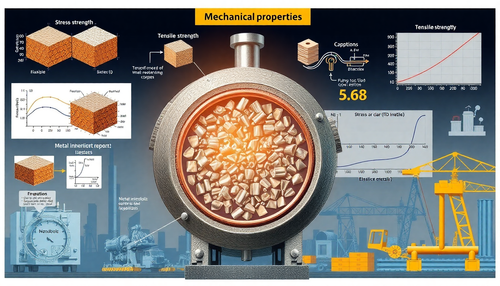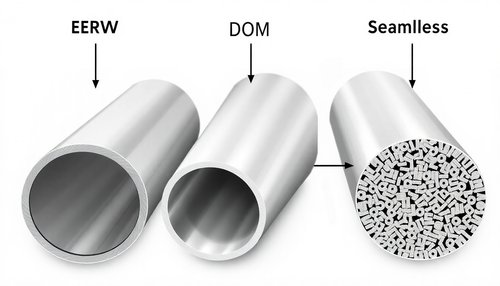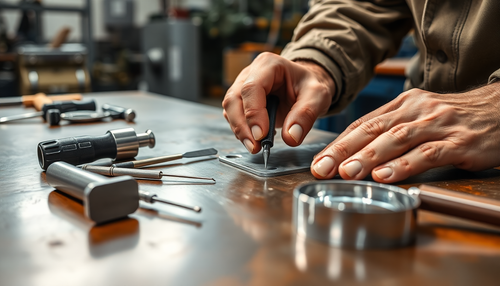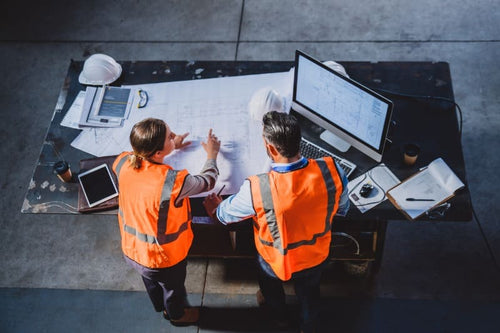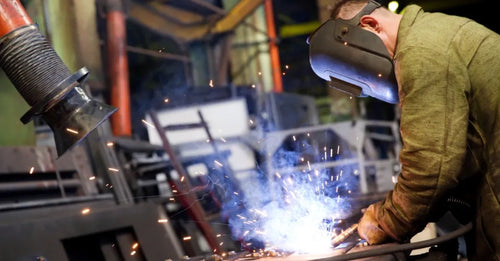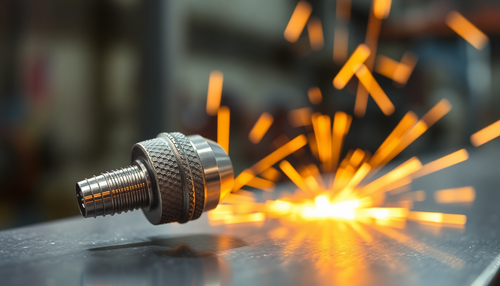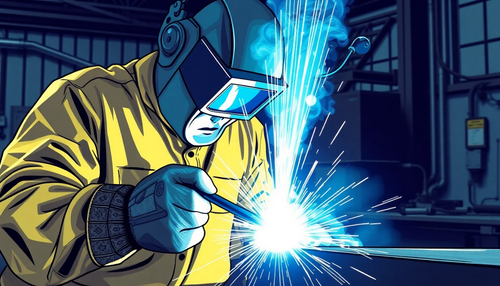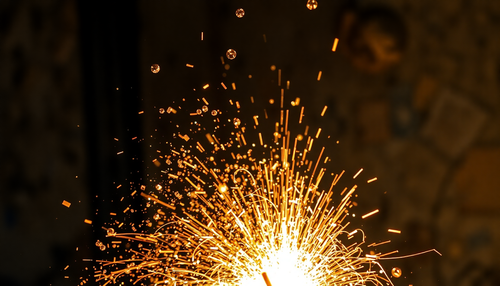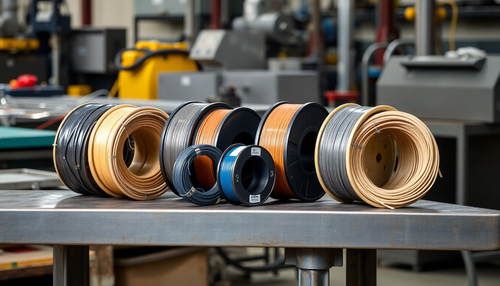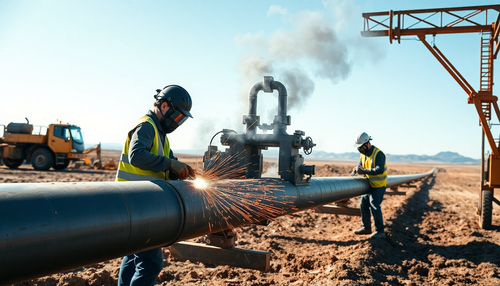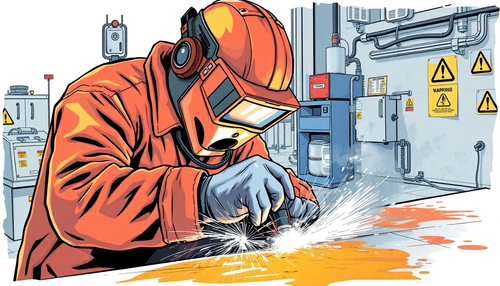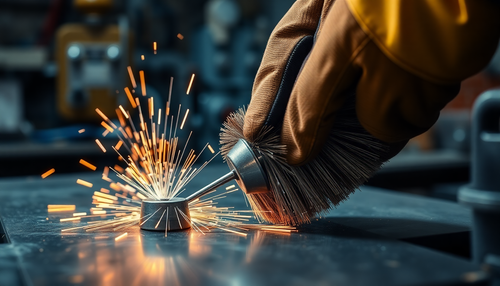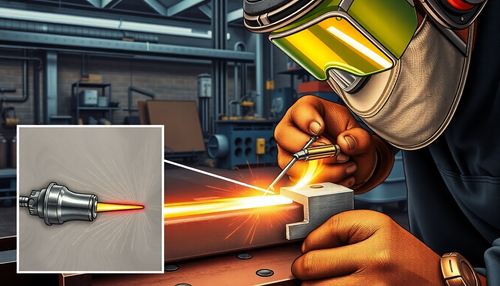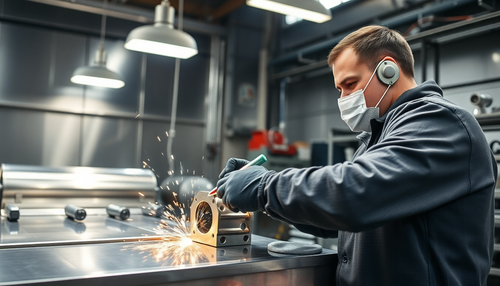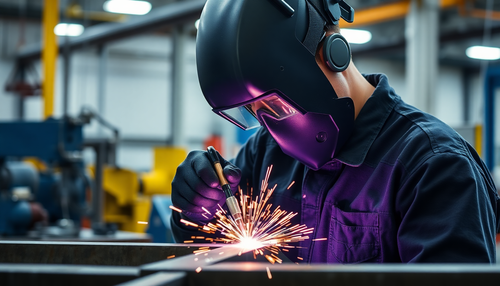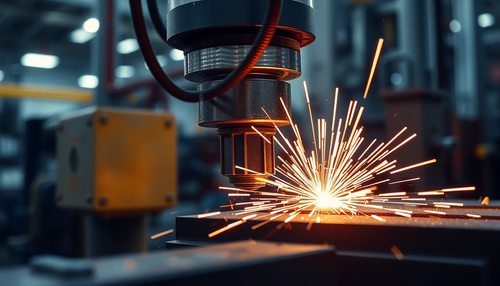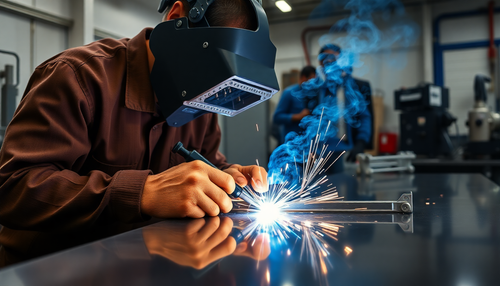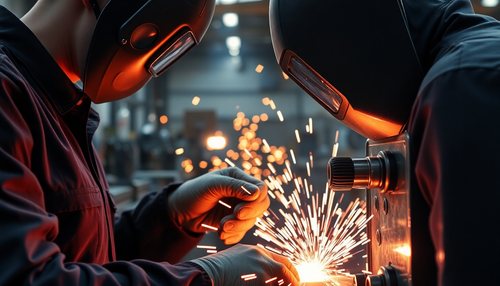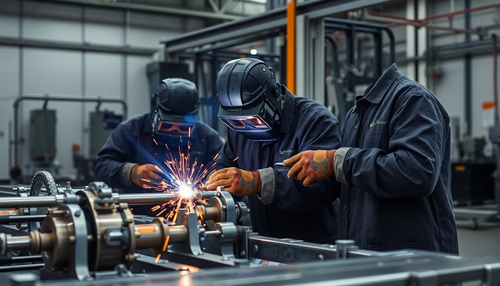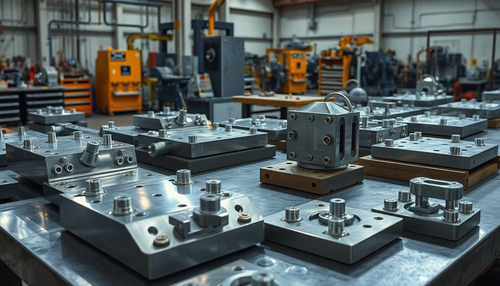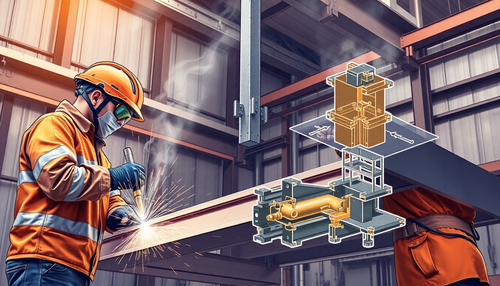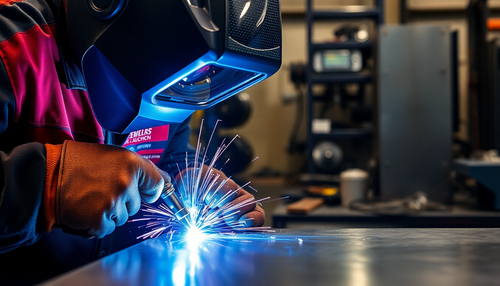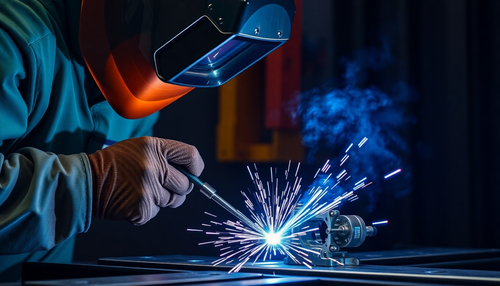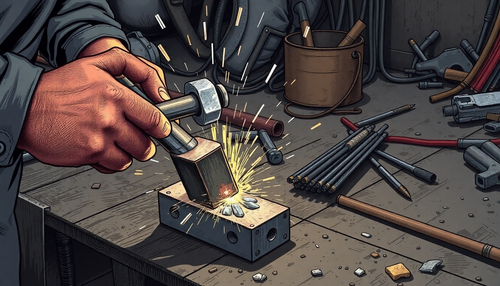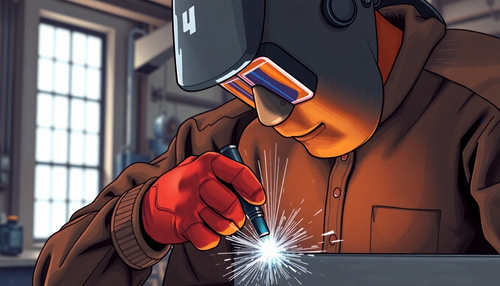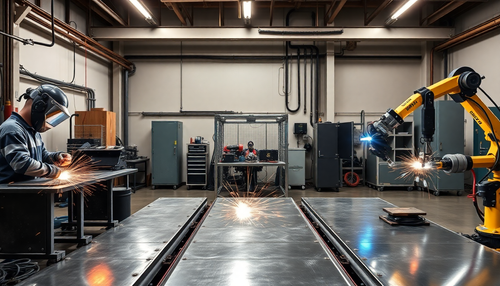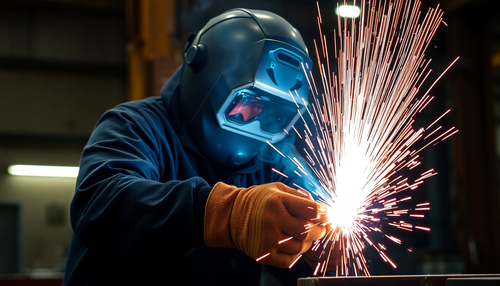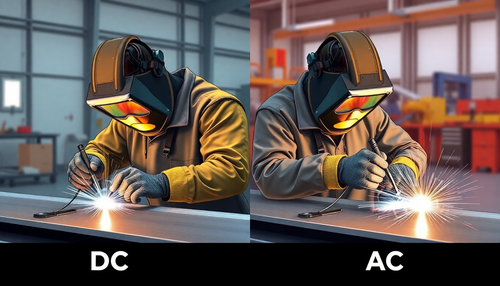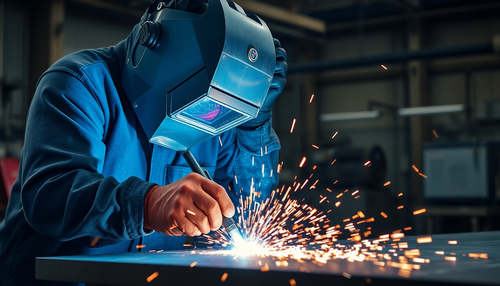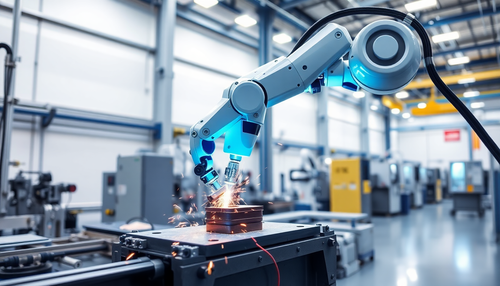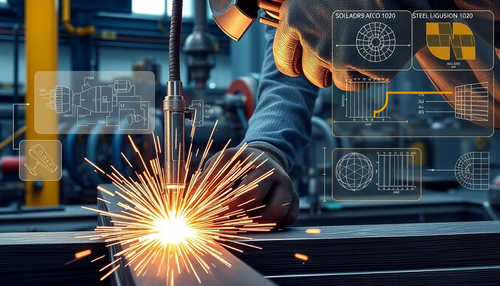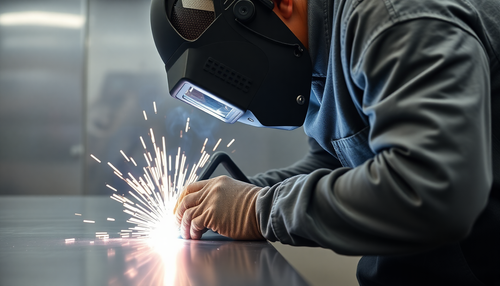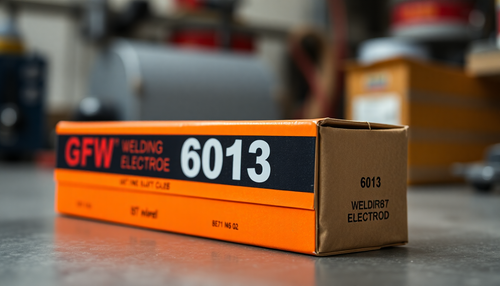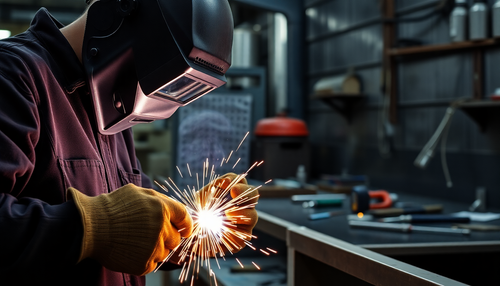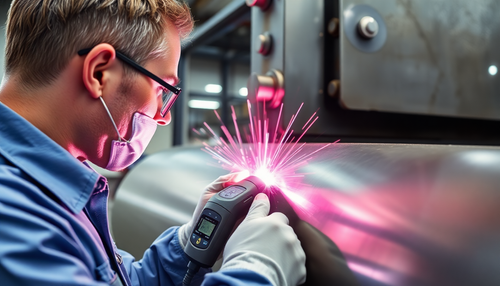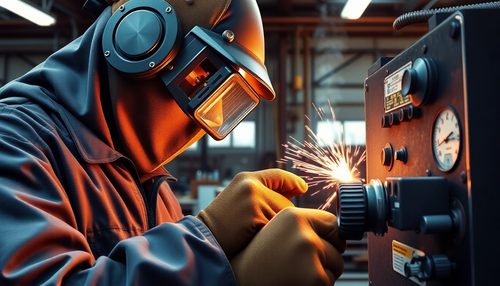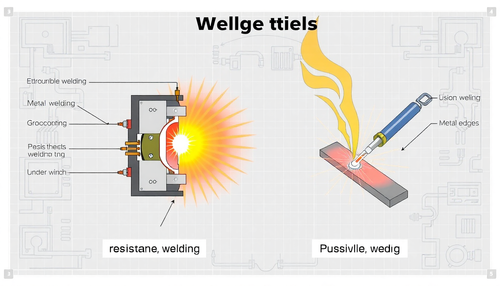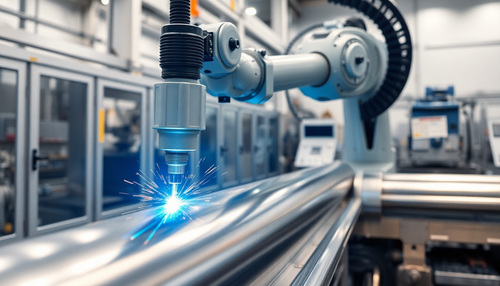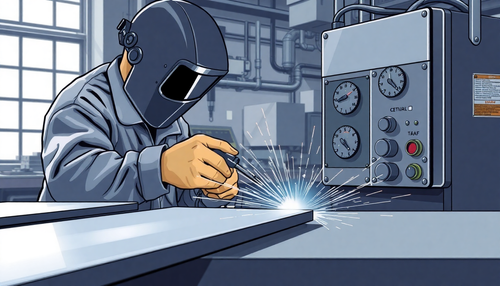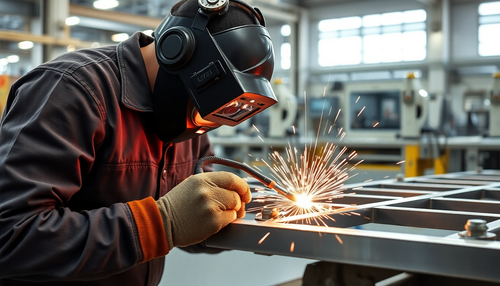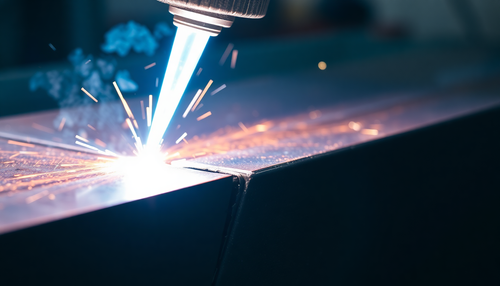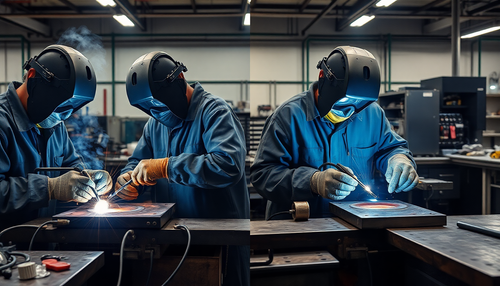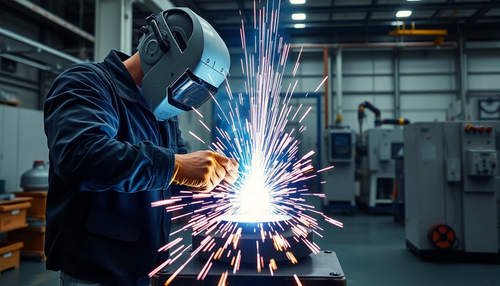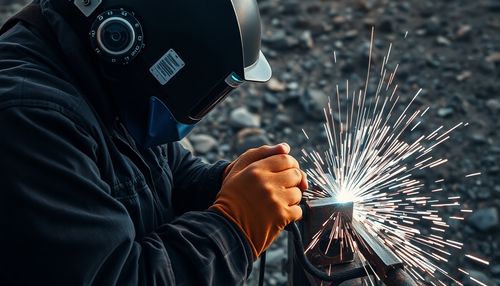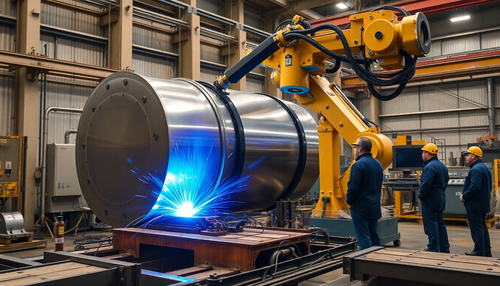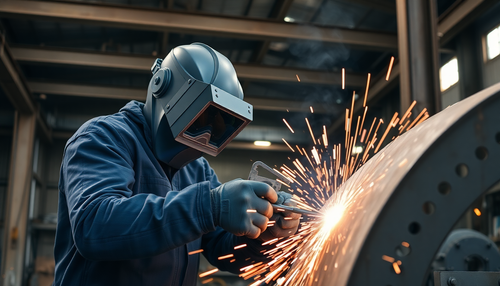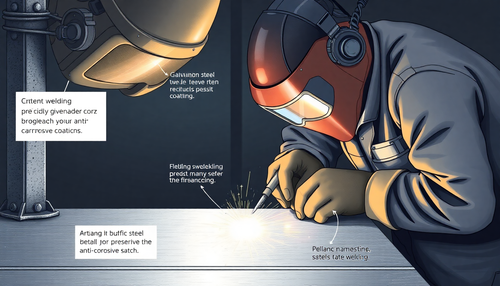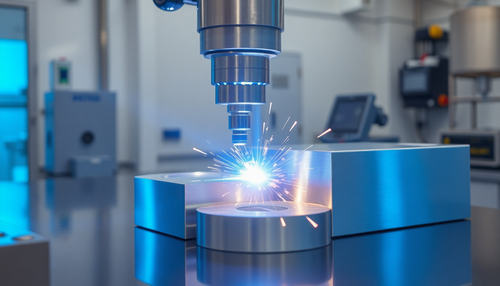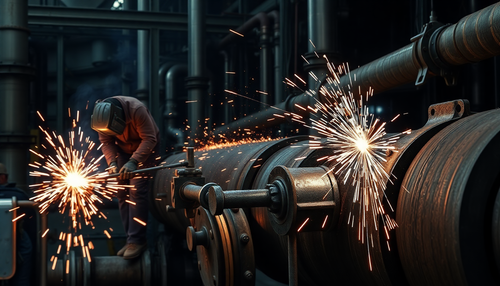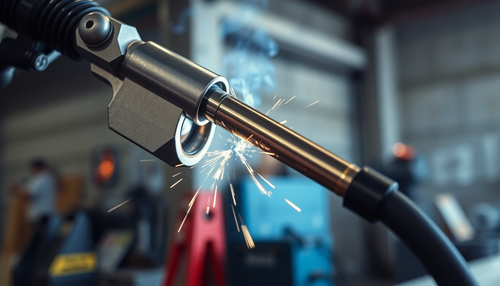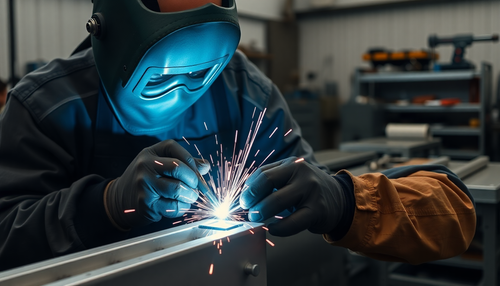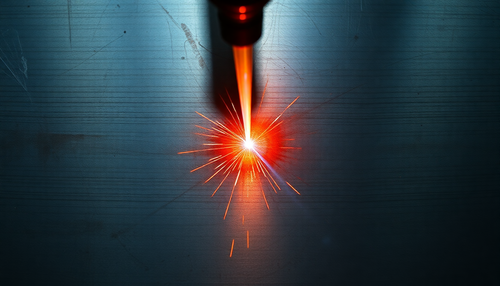In today's rapidly evolving production landscape, industrial robots have become an indispensable asset for companies looking to gain a competitive advantage. But with so many brands and models available, choosing the right robot for your specific needs can be a difficult task.
That's where this original article comes in. It provides in-depth analysis of the world's four leading industrial robot manufacturers: FANUC, KUKA, ABB and YASKAWA Electric.
These four brands dominate the Asian market, with a combined market share of over 70% in China's robotics industry. Each brand has its unique strengths and weaknesses in various technical areas, and in-depth knowledge of their products is essential to make an informed decision.
For example, ABB excels in control systems, KUKA specializes in systems integration and body production, FANUC is a leader in CNC systems, and YASKAWA is known for its expertise in servo motors and motion controllers.

I. Best Industrial Robot Manufacturers
Whether you are in the automotive, electronics, or logistics handling industry, this article source has everything you need. It provides detailed information on each brand's key areas of expertise, technology and internal market analysis, helping you make an informed decision when choosing the right industrial robot for your business needs.
So, if you want to enhance your manufacturing capabilities, read on to discover the world's top industrial robot manufacturers.

| Company | Country | Business | Advantage | Application |
|---|---|---|---|---|
| KUKA | Germany | Welding equipment, robot body, system integration, logistics automation | KUKA, known as the “purest” robotics company, has its main customers in the automotive industry, including Mercedes-Benz and BMW, and serves a wide range of high-quality manufacturing industries. Its robots use an open operating system and North America is its largest global market. | Automotive Manufacturing |
| ABB | Switzerland | Commercial systems integration offerings include power products, power systems, low voltage products, discrete automation, motion control and process automation. | Powered by motors and automation equipment, ABB has exceptional advantages, robust systems integration capabilities and superior core technology in motion control. China has become the company's second largest global market. | Electronics and electrical, logistics handling |
| FANUC | Japan | CNC system, automation, robot | FANUC focuses on the field of CNC systems and is known for its standardized programming and user-friendly operation. The company has the ability to produce the main components in-house, which leads to strong profitability, except the reducer. | The automotive, electrical and electronics industry |
| YASKAWA | Japan | Electric motor equipment, motion control, servo motor, robot body | Japan's first company to produce servo motors, YASKAWA is a typical integrated robotics company with close coordination between its various business departments. The company's main components, such as servos and controllers, are self-sufficient and cost-effective. | Electronic and electrical, transportation |
1. ABB

Switzerland
Founded: 1988
About the company:
ABB, headquartered in Zurich, Switzerland, is a renowned company operating in five main areas: power products, discrete automation, motion control, process automation and low voltage products. It is known for its expertise in energy and automation technology and places great emphasis on the robustness of its robots. ABB is renowned for the precision of its six-axis robots, even though its single-axis speed may not be the fastest.

Main areas
ABB is recognized for its expertise in motion control technology, which is the central and most challenging aspect of robots. The company's strength in this area allows it to improve the performance of its robots in terms of precision, speed, cycle time, programmable design and more, resulting in better production quality, efficiency and reliability.
Technology: algorithms are better, but a little more expensive
ABB, headquartered in Zurich, Switzerland, is a company known for its expertise in power and automation technology. It operates in five main business areas, including power products, discrete automation, motion control, process automation and low voltage products. The company's main strength lies in its motion control systems, which are considered the most challenging aspect of robotics.
With its motion control technology, ABB enhances the performance of its robots by improving path accuracy, motion speed, cycle time, programmable design and more, resulting in greater production quality, efficiency and reliability. The company's control cabinet comes equipped with Robot Studio software, enabling 3D simulation and online functionality. It also supports a variety of industrial bus interfaces and can communicate with different welding and cutting power sources, as well as PLCs, from different brands. The control cabinet offers adjustable parameters including current, voltage, speed and oscillation, allowing the creation of complex oscillation trajectories.
However, ABB robots equipped with high-standard control systems are known to be expensive and the company has one of the longest delivery times among the four major brands. Despite this, ABB prioritizes the design and overall quality of the robot, making it a popular choice for those looking for high-quality, reliable robots.
It is worth mentioning that ABB started with inverters and is widely used in power plants and inverter stations in China.
Internal market analysis
ABB's China strategy emphasizes partnerships with key players in the 3C home appliance industry such as Huawei, Changhong and Topstar. These partnerships highlight the importance of the 3C industry for ABB and the role of companies as leaders and trendsetters in the industry.
In the future, ABB products will increasingly incorporate advanced technologies such as artificial intelligence, connectivity and big data. The company is focusing more on applications and strengthening its relationships with systems integrators to enhance the development of integrated solutions.
2. KUKA

Country: Germany
Founded: 1898
About the company:
KUKA, founded in Augsburg, Germany in 1898, initially focused on indoor and urban lighting. However, it quickly expanded into other areas. Its main customer base is the automotive industry, and KUKA is dedicated to providing advanced automation solutions for various industrial processes, including brain surgery and hospital radiography.

Main areas
KUKA robots are widely used in various industries, including automation, metal processing, food and plastics. They are used for tasks such as material handling, processing, spot welding and arc welding.
Technology: simple to operate, but with a high failure rate
Midea's acquisition of KUKA was a success. In the robotics industry, KUKA is often compared to BMW, while ABB is considered a Mercedes-Benz. Although both brands offer high-quality products, KUKA robots have a higher return rate compared to ABB, FANUC and other brands. However, some reports suggest a higher frequency of failures with KUKA robots.
Despite this, KUKA has a strong sales presence in the domestic market due to its ease of secondary development. The user-friendly human-machine interface allows people with little or no technical knowledge to learn how to operate the robot in just one day, which is not the case with Japanese robots that have more complex control system keyboards and a steeper learning curve . .
It is worth mentioning that KUKA stands out in the area of heavy robots. Among robots weighing 120 kg or more, KUKA and ABB have the largest market share. When it comes to heavy-duty robots weighing between 400 and 600 kg, KUKA leads in sales.
Internal market analysis
KUKA is currently expanding its local services in China and exploring new regions in the southwest. The company is also focusing on the automotive equipment sector in the future. Midea's acquisition of KUKA has had a lasting impact on brands and market response. It will be exciting to see the combined impact of Midea and KUKA in the future.
3. FANUC

Country: Japan
Founded: 1956
About the company:
FANUC was founded in 1956 and launched its electro-hydraulic stepper motor just three years later. As microelectronics, power electronics and computer technology advanced rapidly in the 1970s, FANUC decided to abandon its successful electro-hydraulic stepper motor products. In 1976, the company successfully developed a CNC system and later teamed up with Siemens to create a high-end CNC system. Today, FANUC is recognized as one of the world's leading companies in the design and manufacture of CNC systems.

Main areas
ANUC is a professional manufacturer of CNC systems recognized worldwide. Its industrial robots are unique compared to those of other companies, characterized by its convenient process control, smaller base size for the same type of robot, and distinctive arm design.
Technology: very high precision but no overhead
FANUC is a professional manufacturer of CNC systems recognized worldwide and its industrial robots stand out from those offered by other companies. The company's journey into CNC systems began in 1956, when a group of innovative Japanese technologists established a research team in response to the advent of the 3C era. Their efforts have resulted in the development of highly accurate industrial robots, with reports indicating that FANUC's small six-axis multifunctional robots have a repeatable positioning accuracy of ±0.02 mm.
FANUC industrial robots are unique in their convenient process control, smallest base size for the same type of robot and innovative arm design. Additionally, the company has integrated blade compensation, a feature used in finishing CNC machines, into its robots, allowing them to perform internal cuts during the finishing process. This cannot be achieved without secondary development on YASKAWA robots.
Although FANUC is well known for its accuracy, it has limitations in terms of robot stability. If your robots operate at full load and reach 80% speed, an alarm will be triggered, indicating limited overload capacity. As a result, FANUC excels in light-load, high-precision applications, which explains the success of its miniaturized robots (weighing less than 24 kg).
Internal market analysis
FANUC's strategy is different from others, as it focuses on entering markets with high demand, especially the Chinese market, which has significant growth potential. In China, 55% of FANUC's industrial robot sales are used in the manufacturing industry in general, with the three main industries being household appliances, logistics and electrical and electronics. FANUC is currently the largest robot brand in terms of total sales on the market, relying on an open market approach rather than relying on sales from a few large customers.
4. YASKAWA

Country: Japan
Founded: 1915
About the company:
Founded in 1915, YASKAWA is Japan's largest industrial robotics company and is headquartered on Kitakyushu Island, Fukuoka. In 1977, the company made history by developing and producing Japan's first fully electrified industrial robot, using its own motion control technology. Since then, YASKAWA has continued to innovate and develop various automated robots for tasks such as welding, assembly, painting and handling, solidifying its position as a leader in the global industrial robot market.

Main areas
YASKAWA is a leading producer of servos and motion controllers, which are essential components for manufacturing robots. The company has designed and manufactured a variety of automated robots for tasks such as welding, assembly, painting and handling.
YASKAWA's core industrial robotics offerings include spot and arc welding robots, painting and processing robots, LCD glass plate transfer robots and semiconductor chip transfer robots. Furthermore, YASKAWA was one of the pioneers in introducing industrial robots into the semiconductor production industry.
Technology: good stability, but slightly less precision
With nearly a century of experience in electric motor technology, YASKAWA has global market dominance in the production of AC servo and inverter products. In 1977, the company made history by developing Japan's first all-electric industrial robot, focusing on maximizing motor inertia for greater stability and load-handling capabilities. As a result, YASKAWA robots can operate at maximum speed and load without triggering an alarm and can even handle overload operations. This makes YASKAWA a popular choice in heavy-duty robotic applications such as the automotive industry. However, compared to FANUC robots, YASKAWA robots have a lower level of accuracy. If accuracy is a requirement, customers tend to choose FANUC. However, YASKAWA offers a clear price advantage, with lower prices compared to other major brands and a high price-performance ratio. For example, YASKAWA welding robots with welding kits cost between 130,000 and 140,000 and the company adopts a mass production approach, unlike Panasonic robots.
Internal market analysis
Recently, YASKAWA has been actively expanding its presence in the national market by building new robotics centers, increasing investment in factories and forming a joint venture with the United States to accelerate the localization of its services.
There is a large demand for robots in China and the United States is a significant player in the home appliance industry, providing YASKAWA with sales growth opportunities.
Despite challenges in the Japanese market for its service robots, particularly in the medical robotics sector, YASKAWA remains optimistic about the potential for new growth in the domestic service robot market.
As the market becomes increasingly competitive, it is increasingly common for large robotics companies to seek partnerships with larger applications-based companies. This trend is expected to continue in the future.
5. Epson

Country: Japan
Founded: 1942
About the company:
Seiko Epson Corporation, founded in May 1942 and headquartered in Suwa, Nagano, Japan, is a well-known advanced company in the field of digital imaging throughout the world.
The Epson Group is committed to providing innovative digital imaging technologies and solutions to its customers through a culture of innovation and creativity that increases its overall value as a company.
In recent years, the company has established production and R&D facilities in 32 countries on five continents and has business and service outlets in 57 countries around the world.
With 94 companies worldwide, the Epson Group employs more than 72,000 people worldwide.
Epson China:
Seiko Epson Corporation has been present in China since the 1980s and has gone through three phases of development: commercial exchanges, investment and factory construction, and expansion. Over the past 40 years, Epson has built a comprehensive network of production, sales and service facilities.
Epson (China) Co., Ltd. was founded in 1998, with its headquarters located in Beijing and twelve branches across the country. The regional headquarters is responsible for managing Epson's investments and business development in China.
Epson's operations in China mainly consist of information technology products such as printers, scanners, projectors, electronic components and industrial robots. These products are popular among Chinese consumers due to their high quality, energy efficiency and environmentally friendly features.
6. Yamaha

Country: Japan
Founded: 1955
About the company:
Yamaha Engine Co., Ltd., founded on July 1, 1955, is a professional motorcycle manufacturer. Since 1960, the company has expanded its product line to include power boats, outboard engines and automobile engines.
Yamaha Engine Co., Ltd. has been ranked among the world's top 500 companies several times. With factories and operating institutions all over the world, the company invested one billion dollars in Zizhu Science Park in Minhang District, Shanghai in 2006 to establish Yamaha Engine Trading (Shanghai) Co., Ltd., which mainly sells Yamaha manufactured in China for international markets.
In 2006, Yamaha Engine intensified its research and development of the Yamaha Electric Bicycle and recently began selling it in all provinces in China. In addition to its motorcycle business, Yamaha Engine has diversified into other sectors, including the boat business, energy products business, automobile engine business, intelligent chemical plant equipment business, aviation business and PAS business, expanding its reach from land to sea and even to the sky.
Today, Yamaha Engine Co., Ltd. is not only involved in the motorcycle industry, but also a variety of other industries.
7. Kawasaki

Country: Japan
Founded: 1896
About the company:
Kawasaki Heavy Industries began producing industrial robots in Japan in 1969, marking the beginning of commercial mass production of these machines. With more than 50 years of experience in the field of robotic technology, Kawasaki uses advanced methods to continuously develop high-quality, first-class industrial robots and provide high-value-added projects and services.
The Robotics Business Department, headquartered in Akashi, Japan, has offices and service centers across the country to support customers with technical assistance. Kawasaki subsidiaries and dealers in international markets are also dedicated to meeting the sales, service and engineering needs of their customers.
In 2006, Kawasaki Robotics (Tianjin) Co., Ltd. was established in the Tianjin Economic and Technological Development Zone of China and is wholly owned by Kawasaki Heavy Industries. It is responsible for sales, after-sales service (maintenance, repair, etc.) and technical support for Kawasaki industrial robots in China.
Kawasaki robots are used in various industries, including logistics, beverages, food, fertilizers, solar energy and coal roofing. The company offers a wide range of palletizing and handling robots, as well as professional after-sales services and advanced technical support tailored to meet the specific needs of its customers' workshops.
Additionally, Kawasaki has a well-stocked inventory of parts, ensuring timely delivery of necessary accessories to customers. The company also has display spraying robots, welding robots and spraying test rooms, providing customers with various related services.
8. Nachi

Country: Japan
Founded: 1928
About the company:
Nachi is a comprehensive manufacturing company that produces a wide range of products from raw materials to machine tools. With its expertise in machining, unmanned robots, bearings, hydraulic parts and other functional components, Nachi has made significant contributions to the growth of the manufacturing industry.
The company is dedicated to enhancing its product line with high precision and powerful features and strengthening its brand. As a center for production, sales and technical engineering services, Nachi has established the “Nachi China Business Center”.
Nachi BUERYUE (Shanghai) Trading Co., Ltd., Nachi's main subsidiary in China, provides world-class products and services to the Chinese manufacturing sector and conducts business operations. The Zhangjiagang Base, which is expected to be completed next year, will feature an exhibition hall, Nachi Galaxy China, showcasing Nachi products and its industrial chains.
In addition to precision cutting tool grinding services, Nachi factories also produce cutting tools, ball bearings for automobile air conditioners, engines and hydraulic stations, and functional parts for automobile drive systems.
Nachi is continually exploring ways to establish and expand its business in China. Nachi (China) Co., Ltd. is a wholly owned subsidiary of the Japanese company located in Shanghai, with its main factory located in Toyama, Japan.
Since its establishment in 1928, Nachi has adhered to the philosophy of “contributing to the growth of the world's manufacturing industry” and has continuously combined its core technologies to drive research and development. Today, Nachi's main products include bearings, cutting tools, machine tools, hydraulic equipment, automatic production robots, special steel, ultra-precision machines for the IT industry and environmental systems.
Nachi operates a news bureau from Tokyo and has production bases in North America, South America, Europe, Asia and Greater China, as well as permanent representative offices and sales outlets around the world. This allows the company to stay up to date with market trends and provide prompt services to customers around the world.
Nachi has established a trading company and production factory in Jiading, Shanghai, and is looking for talented individuals from the community to join its growing team. The company offers competitive salaries, benefits and personal development opportunities based on the candidate's experience and capabilities.
9. Student

Country: China
Founded: 1993
About the company:
Estun Automation, listed on the Shenzhen Stock Exchange with stock code 002747, was founded in 1993. The company operates according to the principles of “integrity, focus and co-growth” and is dedicated to research and development in a independent core technologies in order to lay a solid foundation for the company's globalization and become an internationally respected company.
Thanks to its focus on the complete automation ecosystem, its investment in R&D of around 10% of its annual revenue, and the strong support of the global resource platform established through international expansion, Estun has successfully developed three main businesses: industrial automation, industrial robots products and industrial digital products.
As one of the first Chinese companies to independently develop AC servo systems, the industrial automation product line offers a full range of AC servo systems, frequency converters, PLCs, touch screens, visual products and motion control systems, along with with motion control solutions featuring the Trio control system and smart drive products that integrate robots. These solutions meet customers' automation needs, from single axis to single machine and complete units.
The industrial robot product line has grown rapidly with the support of the company's independent core components, offering a comprehensive series of specifications, mainly consisting of six-axis robots with load capacity from 3kg to 600kg and more than 54 types. These robots serve a variety of industries, including new energy, welding, metal processing, 3C electronics, engineering machinery, aerospace and more.
In 2021, Estun entered the field of industrial intelligence and digital manufacturing, offering customers remote access platforms for automation equipment and value-added digital services, including equipment data acquisition and edge computing, operation monitoring, quality monitoring process and digital management services to improve production efficiency and control material consumption.
Becoming an international Chinese company is Estun's main development strategy. In addition to subsidiaries in Hubei, Guangdong and Shanghai, the company has wholly owned companies or holding companies abroad, including Trio in the UK, Cloos in Germany, MAi in Germany, an Italian Research and Development Center and Barrett in the US. Estun's welding robots and rehabilitation robots occupy a leading position in the world, providing a solid foundation for the company's international development strategy.
In the future, Estun will continue to prioritize creating value for customers and helping them grow by focusing on industry-specific solutions and featured products, serving prominent industry customers, making the most of control synergies motion + robot company and providing more competitive integrated automation solutions to the industry. The company will chart its own unique development path.
10. Mitsubishi

Country: Japan
Founded: 1921
About the company:
The Mitsubishi Electric Group offers a diverse range of high-quality products and services for diverse needs, including homes, offices, factories and social infrastructure. Its business philosophy, “One Mitsubishi Electric”, aims to contribute to a better future for China and the creation of a better society.
To achieve this goal, the Mitsubishi Electric Group is committed to promoting its “One Mitsubishi Electric” initiative, which seeks to increase its global strength in China. In the future, the company will continue to listen to the needs of its customers and leverage its advanced technology and products to support the growth and development of Chinese society.
(MEC), the Chinese headquarters of Mitsubishi Electric Co., Ltd., was founded in 1997. MEC is responsible for formulating and executing China's strategy, as well as enterprise risk management, accounting and finance, human resources, relations public affairs and advertising, legal affairs, information security, intellectual property, environmental protection, IT, production technology, research and development, and providing comprehensive support to group companies in China.
The company operates on a principle of “site awareness and quick action,” which emphasizes understanding the situation on the ground and making quick decisions and taking appropriate measures to respond.
Business areas:
Industrial automation:
- AC asynchronous motors
- Gear reducers
- Programmable Controllers (Q-PLC, FX-PLC, L-PLC)
- Human-machine interfaces (HMI)
- Frequency Converters
- Voltage Control Systems
- Power Distribution Control Products
- Motion controllers and servo control systems
- Numerical control systems
- Laser Processing Machines
- Electrical Discharge Processing Machines
- Industrial robots
- Industrial sewing machines
- Mitsubishi Energy Saving Data Collection Servers
- Comprehensive categories.
Power equipment:
- Transformers
- Transformer Cooling Equipment
- Switches
- Protection and control devices
- Power generation equipment
- Metallic power distribution frame
- Smart solutions for substations
- And others.
Electromechanical products for railway transport vehicles:
- Mechanical and electrical products for railway transport vehicles.
Society and Public System:
- Water treatment systems
- Emergency power supply systems
- Others.
Elevator and escalator:
- Air conditioning refrigeration and heating systems.
Domestic air conditioning:
- Home Central Air Conditioning
- Multi-connected/commercial air conditioning (CITYMULTI, Power Multi, Mr. SLIM, etc.)
- Multi-connected/commercial air conditioners (chillers)
- Multi-connect/commercial air conditioning (CoolMulti variable frequency refrigerators)
- Total heat exchangers
- Lossnay ventilation equipment
- Small compressors.
Imaging equipment:
- DLP Rear Projection Display Walls
- Multimedia data projectors
- Diamond Vision LED Display Systems
- Large public LCDs
- Desktop Monitors
- Thermal sublimation printers.
Image detection printing:
- Thermal printheads/contact image sensors.
Semiconductors and devices:
- Power Devices
- Microwave RF Optical Devices/Optical Modules.
Other products:
- Environmental Information Systems
- Solar energy generation systems
- Regenerative braking
- Air jet dryers
- ManedgeLeader Comprehensive Document Management System
- Visual energy savings
- Other products.

